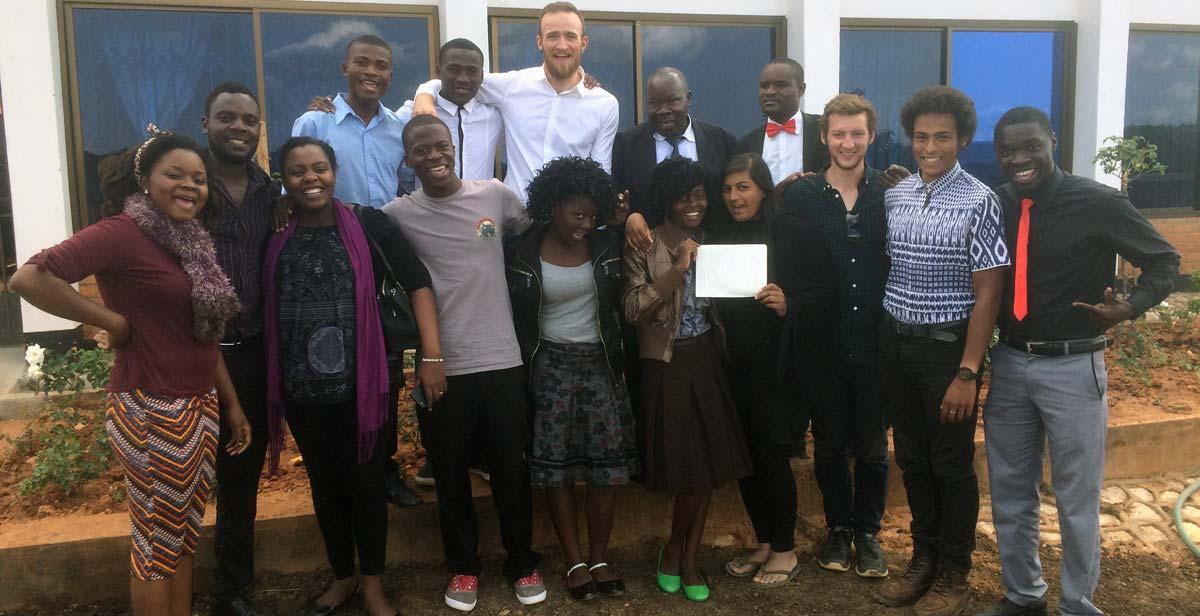With only four weeks left of Team Chikaya’s placement, the team parting ways, Lilongwe airport and future endeavours lie on the horizon. Yet the progress our team has made, both in self-learning and community development, has been great over the past few weeks. We had our mid-phase review where we learned that we all had commitment for community development and wanted to do more outreach to support women and people living with disability. We also restructured the office so everyone can sit together, which has increased communication and teamwork around delivering the project.
Cultural exchange
On Tuesday of last week, we undertook a learning workshop in which the national and UK volunteers cooked different dishes from home. The UK volunteers were taught traditional ways of cooking rice and chicken and national volunteers learnt the methods of baking brownies… including licking the bowl! After a creative and somewhat messy food tech style class on winnowing rice, cooking chicken from frozen and struggling to beat eggs, we yammed all the food up ‘Like we would on the 25 December!’. We ate with our hands and shared one big plate between the squad. Safe to say that all members were stuffed with food as well as being inspired by new recipes that we can take back after the placement.
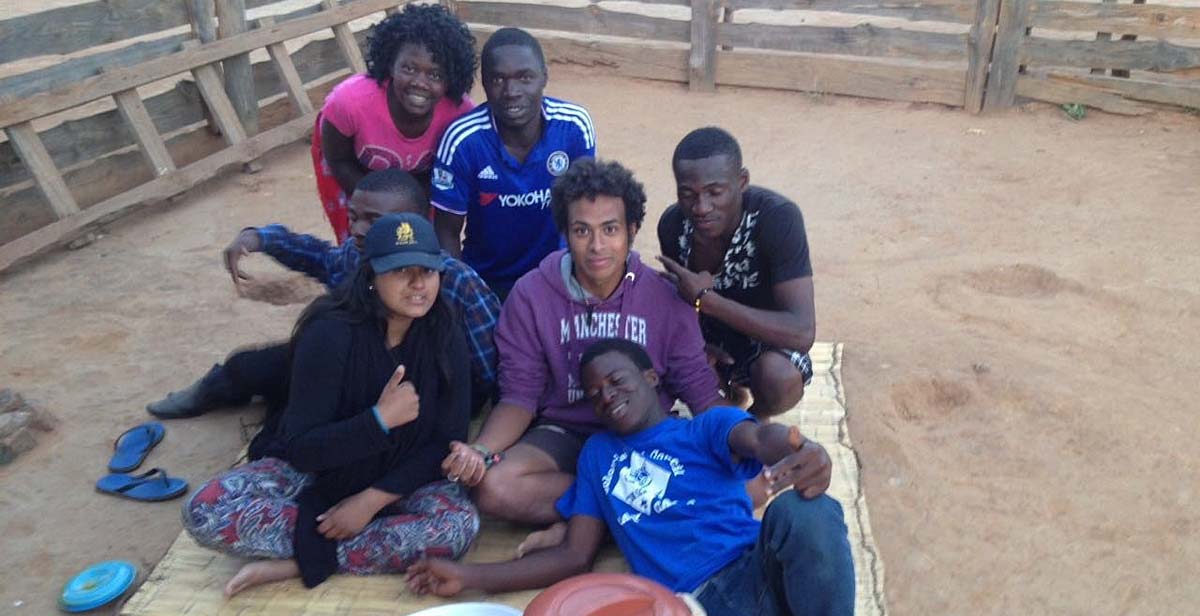
Final peer education session
Back in the field we conducted our third peer education session with a fantastic 42 attendees. One of the aims of the session was to show peer educators how to monitor and evaluate their own work by giving them logbooks and demonstrating the ways in which they can record their activities. This will allow us to see the effectiveness of the programme when we return for a follow-up session in early June. We also conducted mini workshops in which volunteers would rotate around three groups and each address the following:
1. Youth friendly services in the area
2. Changing risky behaviours
3. Role playing potential situations that would arise
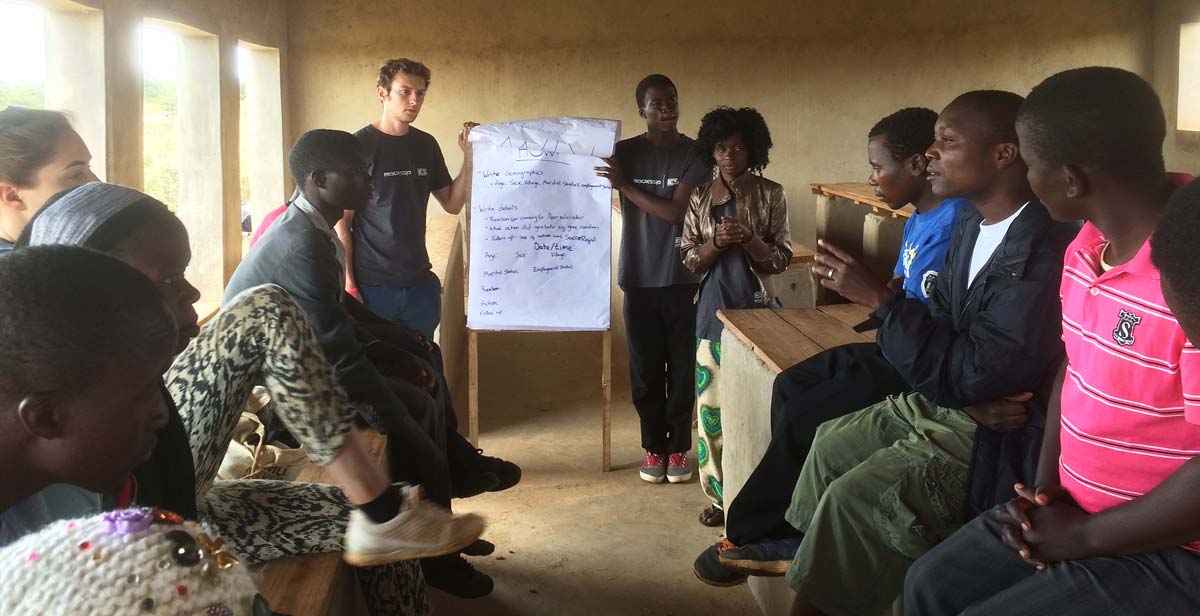
It was interesting to see the discussions the peer educators had with one another and also their desire to know how to have the best effect in their role. The team are looking forward to a follow-up session in which we see the progress the peer educators have made, and certificates to illustrate their new skills will be awarded. Jon Sim, “Seeing the way the women in the community were able to speak out after our three sessions was as rewarding as a Gregg’s after The Great North Run!”
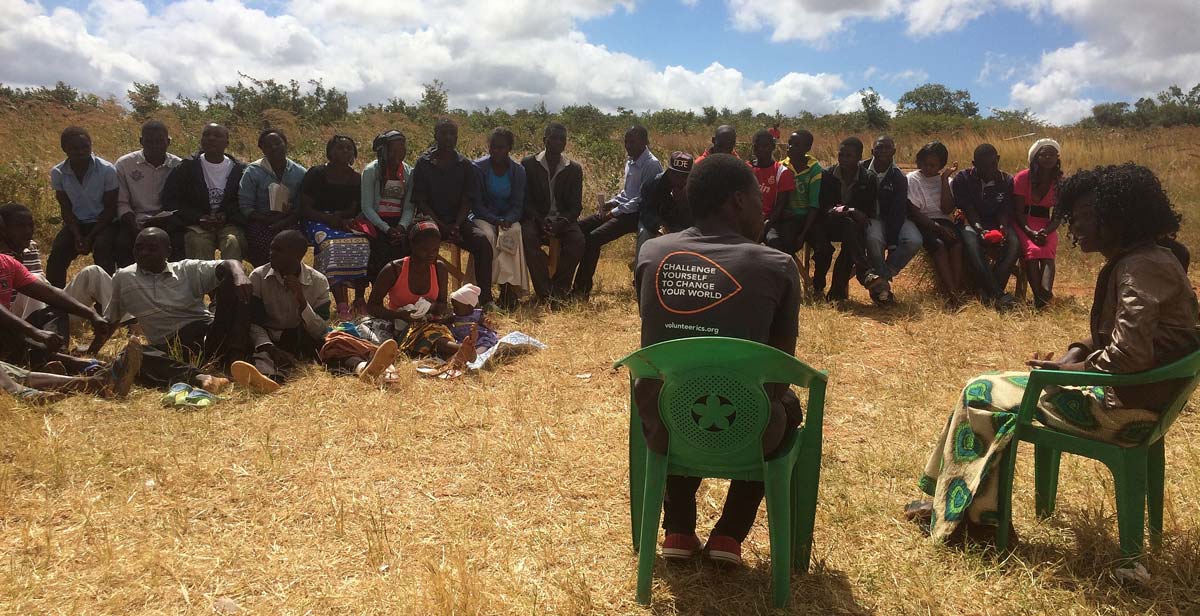
Awareness Session at Chasato
We had a few hiccups on route, such as finding out that half the audience would not be attending. However, with the team playing volleyball and a large sound system with Malawian tunes, we ended up with a big audience. We worked with the community to host the session. The local youth club was involved and conducted two plays on disability and gender. The team talked about myths, and youth rights to services, and how to use a condom correctly. We also worked in partnership with the HTC (HIV testing and counselling) counsellors and were able to test 33 participants on the day.
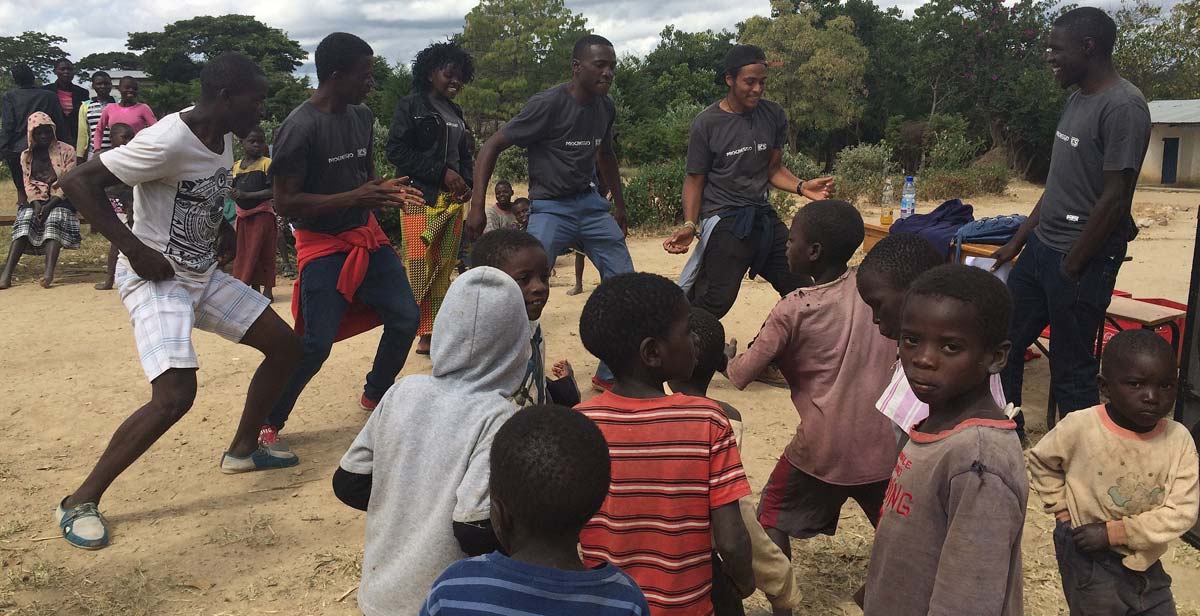
Outreach at Kazomba finding out about inequality
Due to the team’s affinity to work, we conducted an outreach session at Kazomba Youth Club on a weekend. We thought it wise to reach out to the people for a few interviews, so as to get a clear picture of what we need to emphasise on during the next session there. Upon arrival we started the session with an icebreaker ‘nyamanyama’, a game of animals eaten and not eaten by people in Malawi, which was led by volunteers. After everyone was engaged, we split the club into three focus groups:
1. People living with disability
2. Females
3. Males
We identified important information that will support us with the youth club revamp and our future awareness campaign. We have learnt that there is no unity between members, there is a lack of knowledge of sexual and reproductive health for women and about the rights of disabled people. We conducted two interviews and found that a disabled woman had been a victim of rape and the youth club had not supported her. We also learnt that a disabled boy had been a victim of bullying and excluded from activities, which his mother, his full-time carer, was unaware of. We will use this information to link with other organisations and bring it to an awareness campaign.
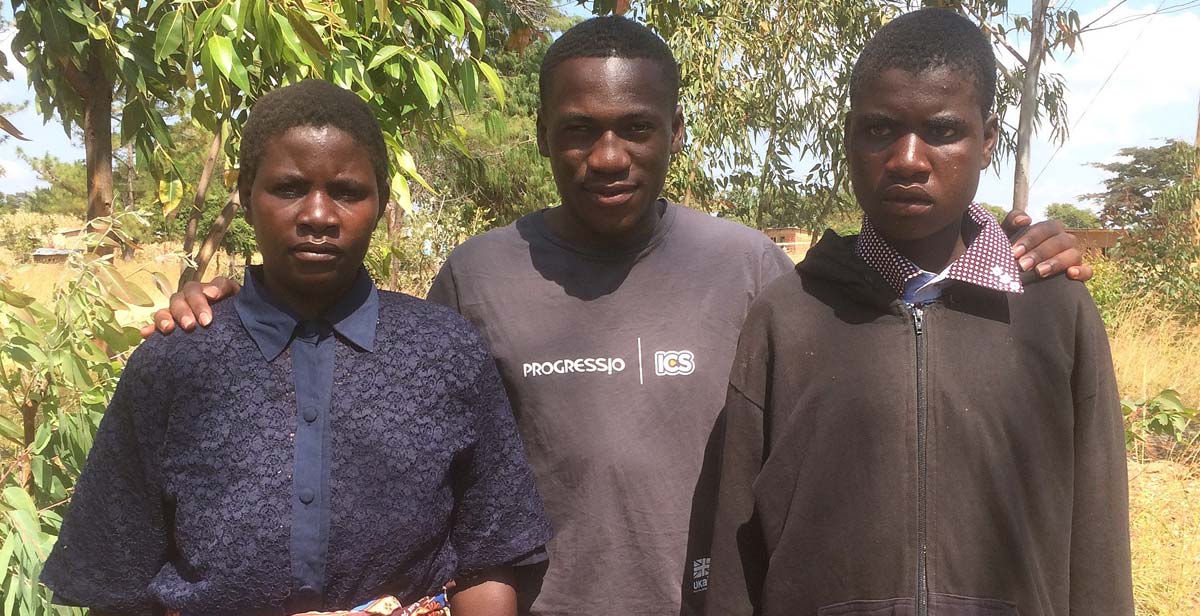
And finally
This week, Chikaya want to set up a VSLA (Village Savings and Loans Association) in Musegede. This will allow the community to make small investments, allowing youth in the community to take loans from the pot to start their own business or enterprise. The aim is to circulate money and grow affluence among the community as well as creating a secure and sustainable unifying project. The VSLA won’t be operational during this cycle, however the team is taking pride in laying the foundations, which the people of Musegede can build upon.
So to wrap up, Chikaya are still firing on all pistons and we look forward to a fruitful final month ahead!
Written by ICS volunteers Richard Munthali and Isaac Murray


